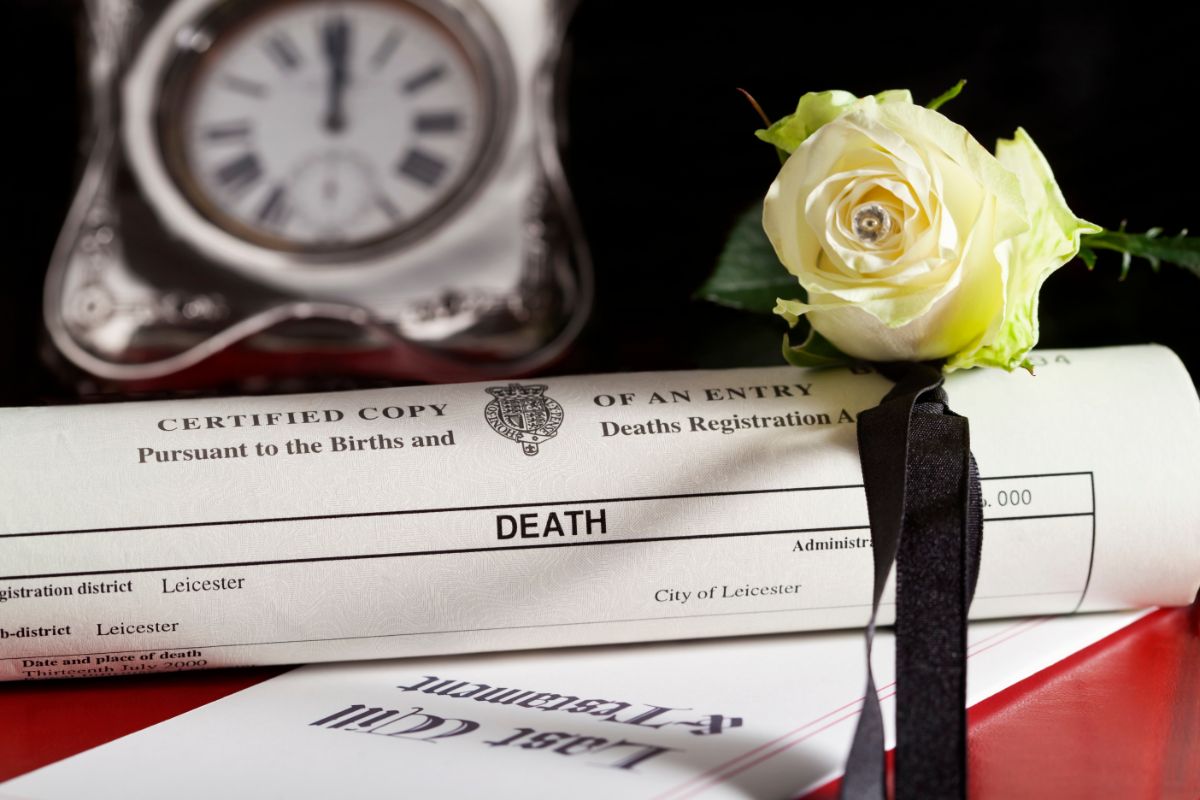Understanding the Duties of an Executor
If you've been named as an executor in someone's Will, it’s crucial to grasp the seriousness of this responsibility. In the UK, an executor is a person designated to implement the deceased’s wishes as outlined in their Will. This position carries a number of responsibilities including managing the estate, which includes overseeing the belongings, property, and debts of the departed individual.
This guide offers a thorough overview of the key duties and legal responsibilities tied to being an executor.
What is an Executor?
An executor is an individual or organisation selected in a will to manage the deceased's assets. Their primary task is to ensure that the departed individual's desires, as set out in the Will, are fulfilled. This encompasses settling outstanding debts, distributing assets to heirs, and overseeing all administrative processes related to the estate.
It's important to note that the executor is legally obligated to act according to the Will and must follow UK law throughout the procedure. Note that in some instances, the executor may also be called the personal representative of the estate.
Key Responsibilities of an Executor
The position of an executor comes with a variety of significant tasks. Below is a breakdown of the main responsibilities involved:
1. Registering the Deceased's Death

The first step in managing the estate is registering the death with the local registry office. This must be done within five days in England, Wales, and Northern Ireland, or within eight days in Scotland. You will require the medical certificate of cause of death, and once registered, you will receive a death certificate. This document is essential for various administrative actions, including applying for probate.
2. Locating the Will
A crucial task for the executor is finding the original Will. The Will dictates how the deceased’s property should be allocated, and it is necessary to present this document when applying for probate. If the Will is not readily available, the executor may need to contact the deceased’s family solicitor, examine their personal files, or check the Probate Registry for any held records.
3. Arranging the Funeral
While not a legal obligation, it is customary for the executor to oversee funeral arrangements. If the Will specifies any funeral preferences, the executor should ensure these are honoured. The executor is also responsible for covering the funeral costs, typically paid from the deceased's estate. It’s important to act within the reasonable expectations of the deceased’s wishes.
4. Securing the Estate
The executor must promptly take action to protect the deceased’s assets. This could involve securing property, safeguarding valuables, and notifying institutions like banks and utility companies about the death. Executors are charged with preventing theft or damage while the estate is being administered.
5. Valuing the Estate
Valuing the estate is an essential step for the executor, which involves assessing the total worth of all assets owned by the deceased. This includes all property, savings, investments, and personal effects. The valuation is necessary to determine potential Inheritance Tax and to calculate the merit of the estate that will be distributed to heirs. Executors should strive for accuracy and thoroughness in their appraisal.
6. Applying for a Grant of Probate

Probate is the legal process that grants the executor authority to handle the deceased's property. To apply for probate, the executor must submit the Will along with the death certificate to the Probate Registry. Once probate is granted, the executor can proceed with managing and distributing the estate. It’s important to note that the probate application process can take several months, depending on the complexity of the estate.
7. Placing a Deceased Estates Notice
Placing a Deceased Estates Notice is a necessary step as part of the estate administration process. This notice is published in The Gazette, a UK government publication, to inform creditors and other interested parties about the deceased’s passing. The notice provides a two-month and one-day window for creditors to come forward and make a claim against the estate.
To place the notice, the executor will need to obtain a Grant of Probate, letter of administration, or death certificate. The notice must include the deceased’s name, address, and date of death, along with the executor’s contact details.
The purpose of the Deceased Estates Notice is to:
- • Notify creditors of the deceased’s passing
- • Set a deadline for creditors to submit claims
- • Protect the executor from personal liability for any claims or debts that arise after the notice period
By publishing the Deceased Estates Notice, the executor can demonstrate that they have taken reasonable measures to settle debts and distribute the assets in line with the Will.
8. Opening an Executor Bank Account
Opening a specific bank account for the estate is an essential step in managing the deceased’s financial affairs. This account holds their funds and assets, and is used to settle debts, taxes, and other expenses.
To open this account, the executor will need to provide:
- • A Grant of Probate or letter of administration
- • A death certificate
- • Proof of identity and address
The executor bank account should be kept separate from personal accounts, ensuring no mix-up of assets. It can be used to:
- • Receive payments from the deceased’s assets, such as bank accounts and investments
- • Settle debts and taxes owed by the deceased
- • Distribute the estate to beneficiaries as per the Will
- • Manage the deceased’s financial holdings, including their property and their investments
9. Paying Debts and Taxes
The executor is responsible for ensuring all debts of the deceased are paid from the estate before distributing any assets to beneficiaries. This includes settling mortgages, loans, credit card bills, and other liabilities. The executor must also address any taxes owed, including Inheritance Tax. Executors should be aware that Inheritance Tax is due within six months of death, and failing to pay on time may result in penalties.
10. Distributing the Deceased's Estate

After all debts and taxes are settled, the executor can start distributing the estate according to the instructions in the Will. This includes transferring assets like property, savings, investments, and personal items to the designated beneficiaries. Executors must ensure that the distribution is done fairly and in compliance with the deceased’s wishes, maintaining detailed records for transparency.
11. Completing the Accounts
Finalising the accounts is the concluding step in the estate administration process. This involves preparing a detailed report of the deceased’s assets, debts, and expenses, as well as the distribution of the estate to heirs.
To complete the accounts, the executor will need to:
- • Gather all relevant financial information, such as bank statements, invoices, and receipts
- • Prepare a comprehensive account of the deceased’s property, debts, and expenses
- • Calculate the inheritance tax owed
- • Distribute the estate in accordance with the Will
- • Obtain approval from the beneficiaries for the accounts
By completing the accounts, the executor ensures that the estate administration process is carried out thoroughly and transparently.
Challenges Executors May Face
While being an executor is an essential duty, it comes with several challenges. Below are some common issues that may arise:
Delays in Probate
Probate can be lengthy, especially for complex estates or disputed Wills. Executors should anticipate delays, which have become more common and frustrating for all involved. Coordination challenges among multiple executors can further slow the process.
Disagreements Among Beneficiaries

Sometimes conflicts may arise among beneficiaries, especially if they are dissatisfied with the Will’s contents. Executors must remain impartial, ensuring the Will’s terms are followed exactly. Effective communication and proper documentation can help minimise disputes and uphold the deceased’s wishes.
Personal Liability
As an executor, you are legally accountable for your actions during the estate administration. If you fail to fulfill your duties properly or make incorrect asset distributions, you could be held personally liable. It's crucial to act with care and seek legal guidance when necessary to avoid legal consequences.
Changing or Resigning as Executor
Sometimes, you may need to change or resign as executor due to unforeseen circumstances.
Changing Executors
If you need to change the executor, you can:
- • Renounce your role: By signing a Deed of Renunciation, you officially relinquish the role of executor.
- • Get power reserved: Apply to the Probate Registry for power reserved, allowing you to step down while retaining some authority.
Resigning as Executor
To resign as executor, you will need to:
- • Notify the Probate Registry
- • Appoint a new executor or have the court appoint one if needed
Consequences of Changing or Resigning as Executor
Changing or resigning as an executor can lead to:
- • Delays in administering the estate
- • Increased costs and expenses
- • Potential disruption in the distribution of the estate
It’s important to seek legal advice before making any changes to ensure you understand the full implications.
Frequently Asked Questions
Can I decline the role of executor?
Yes, you can formally renounce the role before any actions are taken with the estate, and you can suggest someone else to take over.
Am I entitled to compensation as an executor?
Executors may claim reasonable expenses incurred during the estate administration, such as funeral costs and legal fees. Executors who are also beneficiaries may be entitled to a fee based on the terms of the Will.
What if there's no Will?
If there is no valid will, the deceased is considered to have died intestate. The court will appoint an administrator, usually a close family member, to handle the estate in accordance with the laws of intestacy.
Do I need a solicitor?
Hiring a solicitor is not required by law. and if you feel you need to do this, make sure you shop around, and get a nailed down quote from the firm you choose, so there are no nasty surprises later. There are also a number of esttae admninistration companies who can also help, particularly if the estate is complex or if you anticipate disputes among beneficiaries. They can guide you through the probate process and ensure everything is handled properly.
How long does the executor process take?
The time required to administer an estate can vary depending on its complexity. Simple estates may be resolved within six months, while more complicated estates might take over a year. Executors should be prepared for a potentially lengthy process.
Conclusion

Being an executor is a significant responsibility requiring attention to detail and dedication to fulfilling the deceased’s wishes. The role involves managing various legal and financial tasks, from registering the death to distributing the estate and also dealing with the tax authorities. Executors must also navigate challenges such as delays, conflicts, and legal risks. By understanding the key duties and seeking expert advice when needed, executors can successfully manage the estate and ensure the deceased’s wishes are respected.

